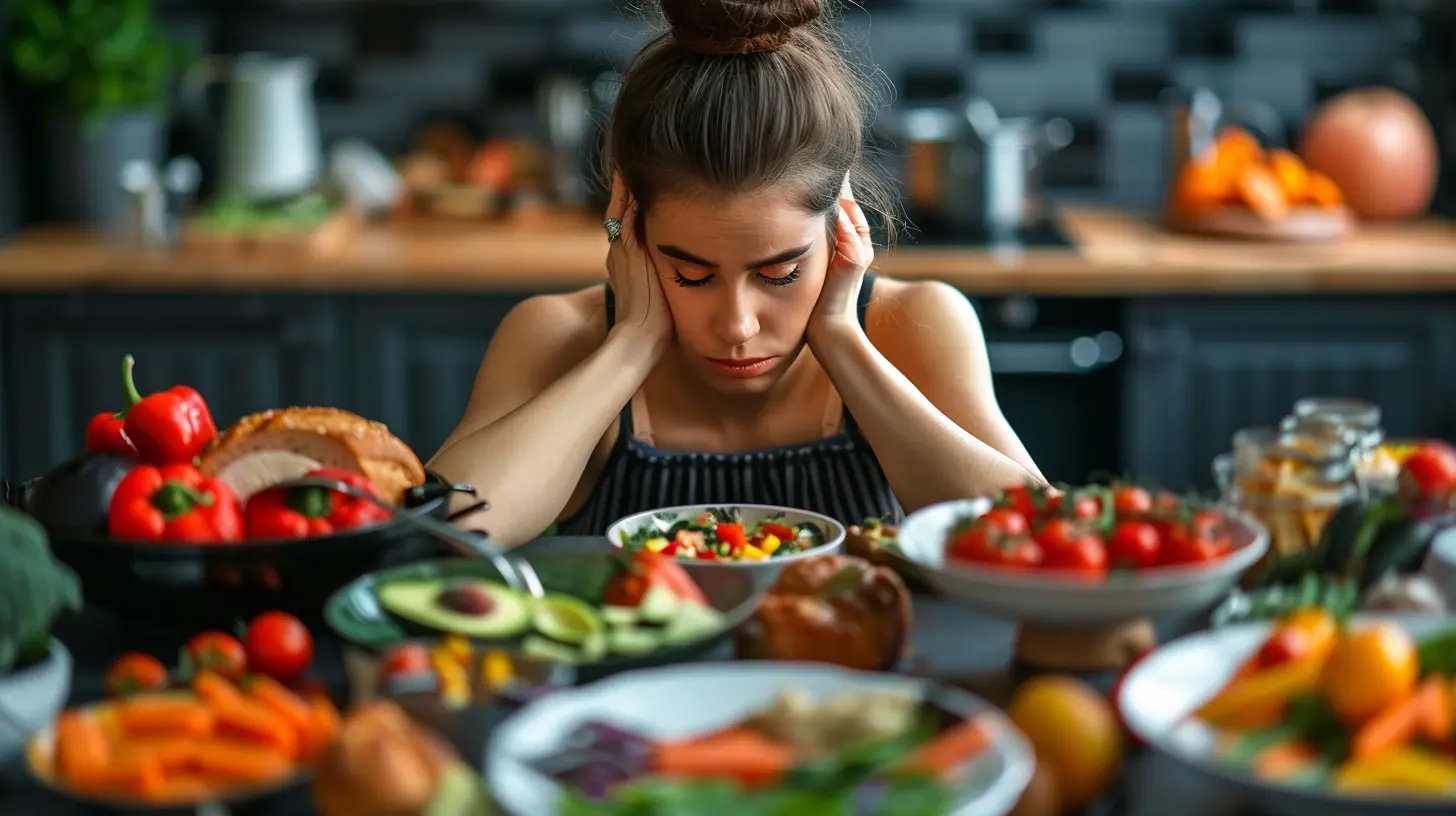Emotional Eating: How to Spot and Overcome It
29 June 2025
Introduction
We’ve all been there—long day at work, a stressful moment, or just feeling a little down, and the next thing you know, you're elbow-deep in a tub of ice cream. Emotional eating is something most of us experience at some point, but when it becomes a habit, it can take a toll on both our physical and mental health.
The good news? You can break free from emotional eating! Understanding why it happens and how to control it can help you develop a healthier relationship with food. So, let’s dive in and figure out how to spot emotional eating and, most importantly, how to conquer it.

What is Emotional Eating?
Emotional eating is the act of using food to cope with feelings rather than to satisfy physical hunger. It’s that comforting piece of chocolate after an argument or the binge session of chips during a stressful deadline. Food becomes more than just fuel—it turns into an emotional crutch.The tricky part? Emotional eating often happens subconsciously. You might not even realize it's happening until you're staring at an empty plate, wondering where all that food went.

Signs of Emotional Eating
Spotting emotional eating isn’t always straightforward, but there are certain patterns that can help you differentiate it from physical hunger. Here are some red flags to watch out for:1. Sudden and Intense Cravings
If you’re genuinely hungry, almost any food sounds appealing. But if you’re emotionally eating, you’ll likely crave specific comfort foods—usually something sweet, salty, or high in carbs.2. Eating When You’re Not Physically Hungry
True hunger builds up over time, whereas emotional hunger strikes suddenly. If you just ate a full meal but still feel the urge to snack, emotions might be driving your appetite.3. Mindless Eating
Ever sat down with a bag of chips, only to realize minutes later that it’s empty? Emotional eating often happens mindlessly, without you even registering what or how much you're consuming.4. Food as a Reward or Escape
Do you turn to food when you’re bored, stressed, lonely, or celebrating? Emotional eaters often use food as a way to avoid dealing with emotions directly.5. Feeling Guilty After Eating
If you feel ashamed or regretful after eating, there’s a good chance emotions played a role in your food choices. Physical hunger doesn’t carry guilt—your body simply needed nourishment.
Causes of Emotional Eating
Why do we emotionally eat? The answer isn’t always simple, but several factors contribute to this habit:1. Stress and Anxiety
When you’re stressed, your body releases cortisol, a hormone that increases cravings for salty and sweet foods. That’s why you might find yourself reaching for a chocolate bar after a tough day.2. Boredom
Sometimes, we eat just to fill the silence. If you're feeling unoccupied or restless, food may become a source of temporary entertainment.3. Childhood Habits
Were you rewarded with sweets as a child for doing something good? Or maybe food was a source of comfort during tough times? These deep-seated habits can follow us into adulthood.4. Social Influences
Ever felt pressured to eat at a gathering just because everyone else was? Social settings can trigger emotional eating, whether it’s indulging in cake at a party or ordering fast food because friends are doing it.5. Fatigue
Lack of sleep can mess with your hunger hormones, leading you to crave unhealthy foods. When you're tired, your brain looks for quick sources of energy—often in the form of sugar and carbs.
How to Overcome Emotional Eating
The good news? Emotional eating isn’t something you’re stuck with forever. With a few powerful strategies, you can regain control and break the cycle.1. Identify Your Triggers
The first step is figuring out what causes your emotional eating episodes. Keep a food journal and write down when and why you eat. Look for patterns—do you eat when you’re stressed, bored, or sad?2. Find Alternative Coping Mechanisms
Food isn’t the only way to deal with emotions. Instead of eating, try:- Going for a walk
- Calling a friend
- Practicing deep breathing
- Engaging in a hobby
- Journaling your thoughts
Replacing food with healthier coping mechanisms can make a world of difference.
3. Eat Mindfully
Mindful eating is about being present with your food. Pay attention to textures, flavors, and signals of fullness. Instead of eating in front of the TV, sit at a table and truly enjoy your meal.4. Pause Before You Eat
The next time you feel like reaching for food, pause for a moment and ask yourself:- Am I physically hungry?
- What emotion am I feeling right now?
- Is there another way to deal with this emotion?
This simple pause can help you become more aware of your eating habits.
5. Keep Trigger Foods Out of Sight
If you know that having a tub of ice cream in your freezer leads to late-night binges, don’t keep it in your house. When unhealthy foods aren’t easily accessible, you’re less likely to give in to cravings.6. Maintain a Balanced Diet
Eating regular, balanced meals can prevent blood sugar crashes that lead to cravings. Focus on protein, fiber, and healthy fats to keep you full and satisfied.7. Get Enough Sleep
Prioritize sleep! A well-rested body is less likely to crave unhealthy foods. Aim for at least 7-9 hours of quality sleep each night.8. Practice Self-Compassion
If you slip up, don’t be too hard on yourself. Everyone has moments of emotional eating. Instead of feeling guilty, acknowledge it, learn from it, and move forward. Progress, not perfection!9. Seek Support
Sometimes, emotional eating is deeply rooted in past experiences or ongoing struggles. Talking to a therapist, nutritionist, or even a supportive friend can help you process emotions in a healthier way.10. Stay Hydrated
Did you know thirst is often mistaken for hunger? Keep a water bottle with you and sip throughout the day. Staying hydrated can curb unnecessary cravings.Final Thoughts
Emotional eating isn’t about a lack of willpower—it’s a deeply ingrained habit that takes time and effort to change. The key is not to judge yourself harshly but to develop a greater awareness of your eating triggers and find healthier ways to handle emotions.One step at a time, you can break free from emotional eating and build a more balanced relationship with food. So, the next time you find yourself reaching for that bag of chips, pause, take a breath, and ask yourself—what do I really need right now? Chances are, it’s not food but something deeper.
Your journey to mindful eating starts today!
all images in this post were generated using AI tools
Category:
Weight LossAuthor:

Sophia Wyatt
Discussion
rate this article
1 comments
Cambria Mercado
Thank you for shedding light on emotional eating. Your insights resonate deeply, reminding us that self-awareness is the first step towards healing. I appreciate the practical tips and support offered in this article.
July 7, 2025 at 5:03 AM

Sophia Wyatt
Thank you for your thoughtful comment! I'm glad the insights and tips resonated with you. Self-awareness is indeed crucial for overcoming emotional eating.


